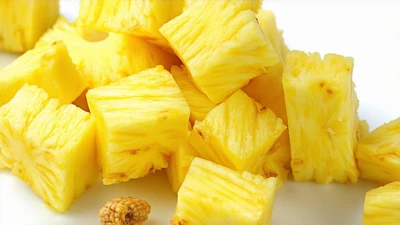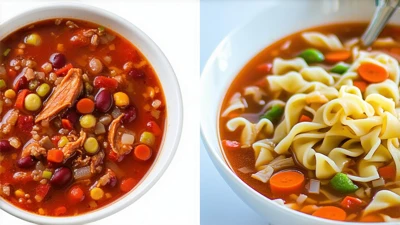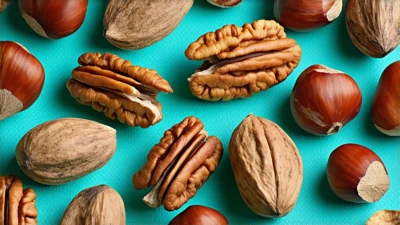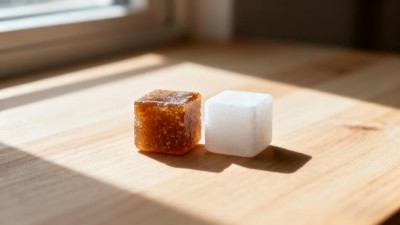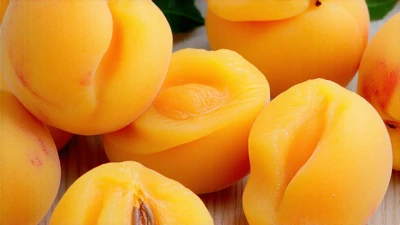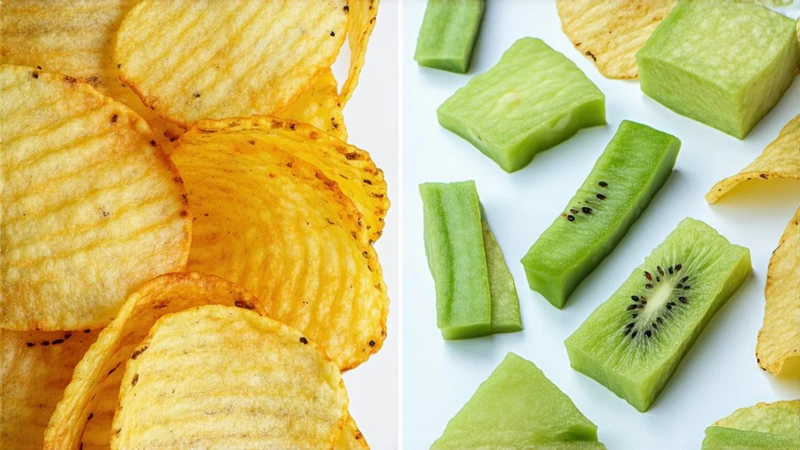
Veggie Chips vs. Fruit Chips: Snack Conclusion Based on the Data
In the snack aisle of your local grocery store, two challengers for your snack money have entered the ring: veggie chips and fruit chips. They both promise crunch, flavor and convenience, but which one really deserves a place in your pantry? The answer is rooted in nutrition, taste and lifestyle. As 1 Corinthians 10:31 notes, "Whether you eat or drink, do it all to the glory of God." And choosing snacks that not only honor our body but also match our values is one way of living intentionally. So let's break down the data to see what snack is the real winner.
Nutritional Faceoff: Analyzing the Numbers
It all starts with the nutritional profile, the basis for any snack debate. Below, we compare averages per 1-ounce serving (USDA, 2023):
| Nutrient | Veggie Chips | Fruit Chips |
|---|---|---|
| Calories | 150 | 120 |
| Fiber (g) | 3 | 2 |
| Natural Sugar (g) | 2 | 15 |
| Sodium (mg) | 150 | 10 |
| Vitamin A (% DV) | 20% | 10% |
| Vitamin C (% DV) | 15% | 25% |
Key Takeaways:
Veggie chips come out ahead in fiber and sodium (though that can also be a negative).
Fruit chips contain higher concentrations of natural sugars and vitamin C but no fiber.
Flavor and Texture: Savory vs Sweet, Crunchy vs Chewy
Taste is subjective, and deeply personal. A 2023 Mintel survey reported that 62 percent of Americans prefer savory snacks, helping veg-chips rise to the top. But fruit chips appeal to the 38% who like sweet. Texture also matters: baked veggie chips (think Terra's root vegetable blends) lend a sturdy crunch; dehydrated apple or banana chips a chewy bite.
Health Implications: Low-Sugar Diets Vs Energy Boosts
For anyone (like me) who's controlling sugar, veggie chips are a better risk. They also have very low sugar (2g per serving), fitting in ketogenic or diabetic diets. On the other hand, if you need a quick energy boost, fruit chips, which contain 15g of natural sugars, will do the trick, which is great for athletes or midday slumps.
Health Risks to Note:
Fruit chips: So joke, excess natural sugars can spike blood sugar (Proverbs 25:16: "Too much honey, and you will vomit").
Veggie chips: Types with lots of sodium can be harder on heart health, get baked ones.
Dietary Requirements and Allergens: Managing Limitations
Both are vegan and gluten-free, but they contain different allergens. Potato starch is also the base for some veggie chips (such as Sensible Portions), while fruit chips (like That's It!) often avoid nuts. Always look for soy or gluten additives in labels.
Dried, fried, or baked? Preparation methods
Processing impacts nutrition. Baked veggie chips (150 calories) are better than fried ones (200+ calories). Fruit chips are dehydrated fruit pieces that retain more nutrients than sugary dried fruits.
Economic and Environmental Processes
Snacks' environmental footprint is an increasing concern. The Water Footprint Network reports that fruit crops such as almonds need 1,600 gallons of water to produce a pound, while vegetables like kale use only 300 gallons.
| Category | 2023 Market Size | CAGR (2023–2030) | Leading Brands |
|---|---|---|---|
| Veggie Chips | $2.5B | 6.2% | Terra, Sensible Portions |
| Fruit Chips | $1.8B | 4.8% | Bare, That's It! |
Cost Comparison: Veggie chips run an average of $4.50 per bag while fruit chips sit around the $5.00 mark as their ingredients are more expensive.
Cultural Preferences and Market Trends
Dominated by Veggie Chips in the U.S. — fueled by health trends and growth in savory snacking (6.2% CAGR). Fruit chips are particularly suited to areas such as Scandinavia, where dried berries feature in traditional diets.
Culinary Creations: Off the Bag
Veggie chips are good with hummus or guacamole.
Fruit chips make a star appearance in trail mixes and on yogurt bowls.
Recipe Idea: Use crushed veggie chips as little crusts for baked chicken; blend fruit chips into smoothies.
Marketing and Sustainability
Superfood labels are everywhere, but read the ingredients. Less than one third of veggie chips contain organic veggies, while 45% of fruit chips do (2022 Snack Industry Report).
Conclusion: Which One is Right For You?
Both snacks have merits. Veggie chips may win for low-sugar energy grain health and high-fiber diet, while fruit chips mop up vitamin C, antioxidants and natural energy. A busy professional, I go for veggie chips for their savory crunch but save fruit chips for post-workout boosts. In the end, moderation is key, enjoy both in moderation.
Final Thought: "Let all that you do be done in love" (1 Corinthians 16:14)—these include snacksy.
Sources: USDA; Mintel; Grand View Research; Water Footprint Network.











